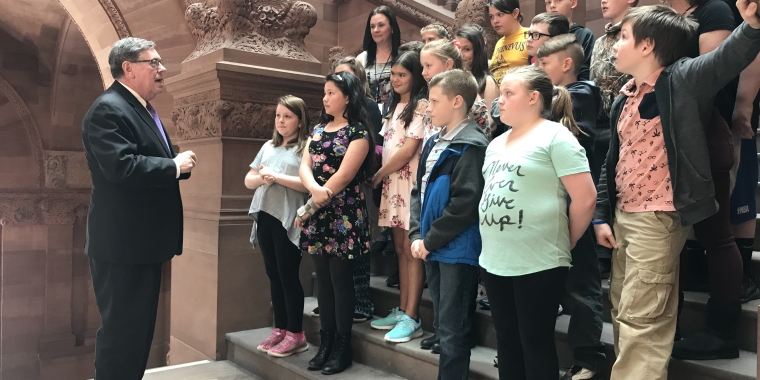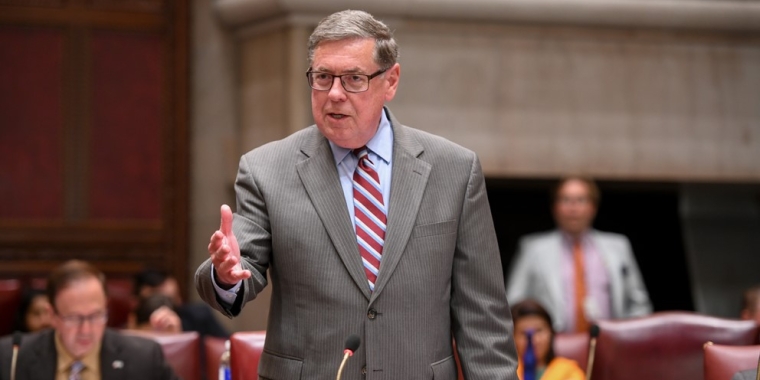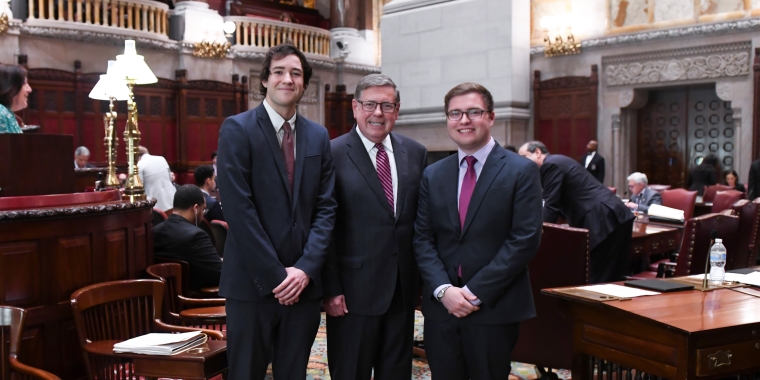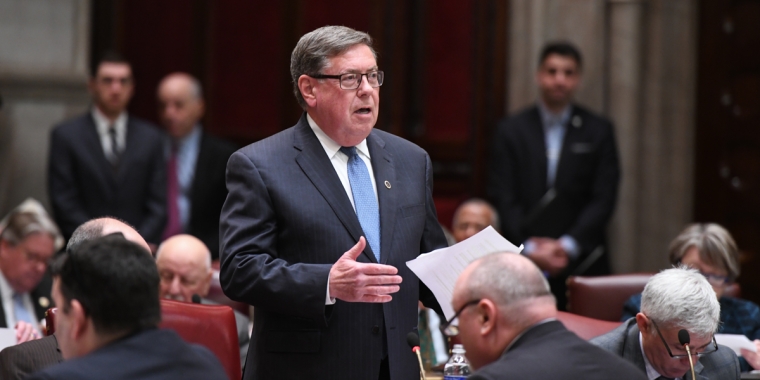
Focusing On Property Tax Reform
James L. Seward
I have received a volume of mail recently concerning rising assessments, community revaluations, and the effect of inflated home assessments in a down market. Many want to know how the reassessments will affect their property taxes, and why they pay more taxes than a family across the street in a similar home -- but in another town or village.
While I have been working to ensure that the new state budget includes additional immeidate property tax relief in the form of property tax rebates, new aid for local schools, and restoring the governor's cuts to counties that would have driven up property taxes, there is more to be done.
I remain committed to structural, genuine property tax relief and reform -- changing the way we pay for school expenses in particular and addressing higher and higher assessments that are driving taxes up and people out of their homes.
The people of the district tell me that property taxes are their number one concern, and fuel prices are right up there.
That's why we must provide the solutions people need to bring down property taxes. Here are some possibilities:
The circuit breaker. A circuit breaker trips when an electrical charge is too much for the system to carry. Likewise, senate bill 1053-A would create a "circuit breaker" that trips when a high property tax load is too much for a family's income. It offers an innovative approach with a middle class circuit breaker to families and seniors whose property taxes are high relative to their incomes. It offers income tax credits to offset property taxes, and is geared to middle income families. You can see how the bill would affect you by checking out the box marked "Tax Calculator" at my website -- http://www.senatorjimseward.com.
A family with a $50,000 income paying $4,500 in school and land taxes would see more than a $1,000 tax credit from the program, cutting their property tax liability by more than 20 percent.
Property tax freeze for senior citizens. Senate bill 6119, which I am cosponsoring, offers immediate tax relief to seniors across the state by freezing the assessments on their homes, while also providing state reimbursement to municipalities for any lost real property tax revenue.
When a reval happens. Senate bill 5999 is under review. It limits increases in real property taxes due to a revaluation, reassessment or update to 3 percent.
Property tax reform. Relief is important. But we need to go further and enact real reform. The senate passed the NY -STOP (Stop Taxing Our Property) program. Under the bill, school districts could take a public vote to determine if real property taxes on primary residences would be phased out over five years and be replaced by additional state funding. Districts that opt in would reduce residential real property taxes on primary homes by 20 percent annually until the property tax was eliminated after five years. A new state aid formula would reimburse districts. After five years, the formula would provide districts with an annual school aid cost-of-living increase.
The plan includes a blue ribbon property tax reform commission. The eleven-member panel, which would have experts in from education, municipal finance and assessment administration, would examine the property tax system and offer reforms to relieve homeowners and other property owners of their increasing tax burdens (S.1052).
My reform plan includes a comprehensive mandate relief plan in order to help reduce costs to school districts, municipalities and local taxpayers. The measure would require the state to pick up the cost of any state mandated program imposed on municipalities or school districts.
Other measures under discussion include:S. 1-A -- Enacts the Rebate Plus Act of 2007, which includes voter initiated caps on local village, town, school district, city, or county tax rates;
S. 2070-- Abolishes school taxes, provides for alternative taxes to fund education.
Relief, now. Reform, definitely.
Share this Article or Press Release
Newsroom
Go to NewsroomSchenevus School Aid Bill Signed into Law
June 25, 2019

Statement on 2019 Legislative Session
June 21, 2019

Professor Seward Meets with Former Students
June 20, 2019

